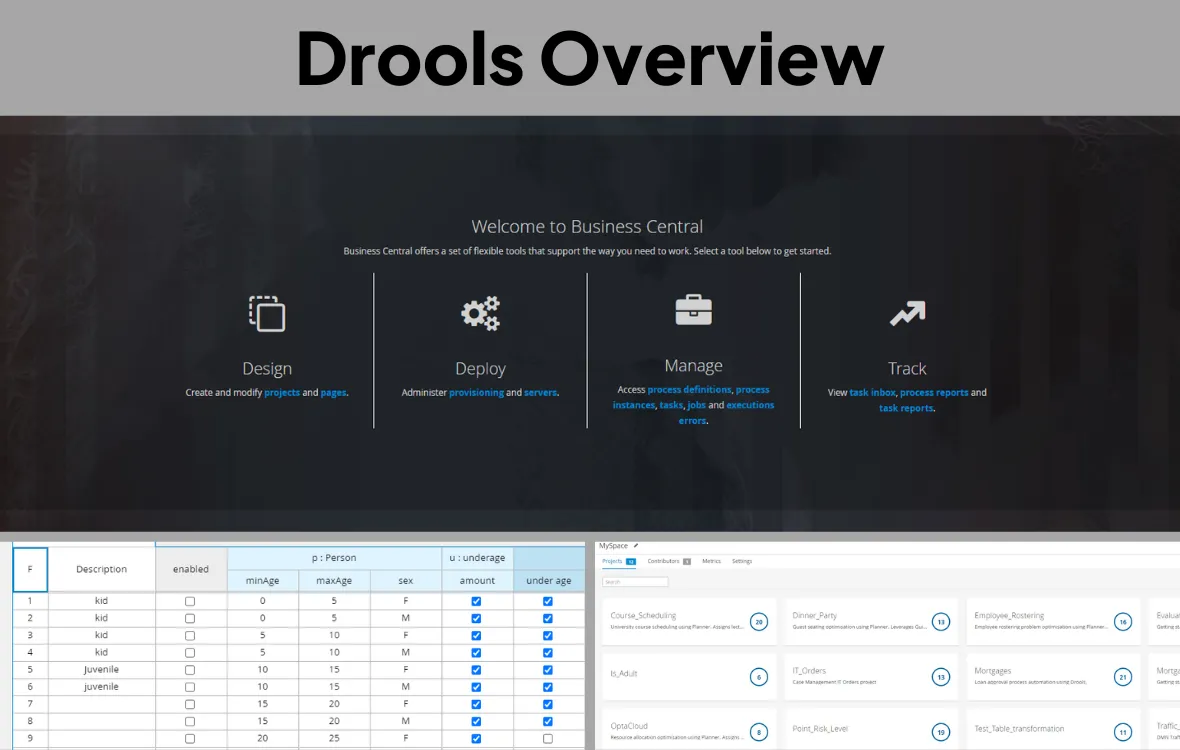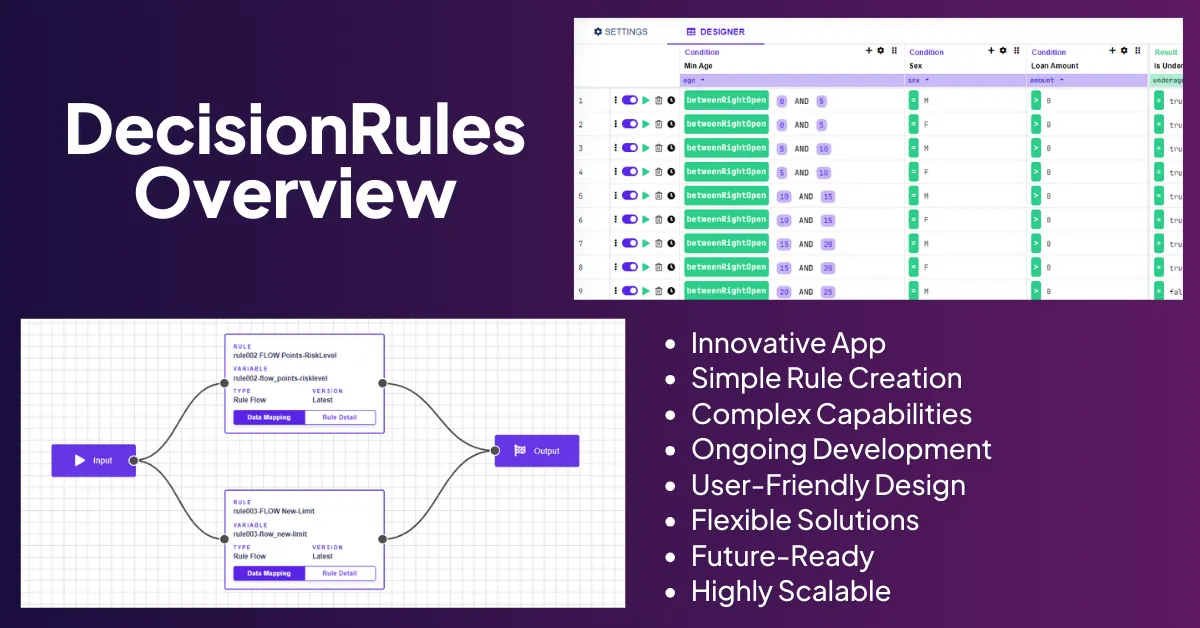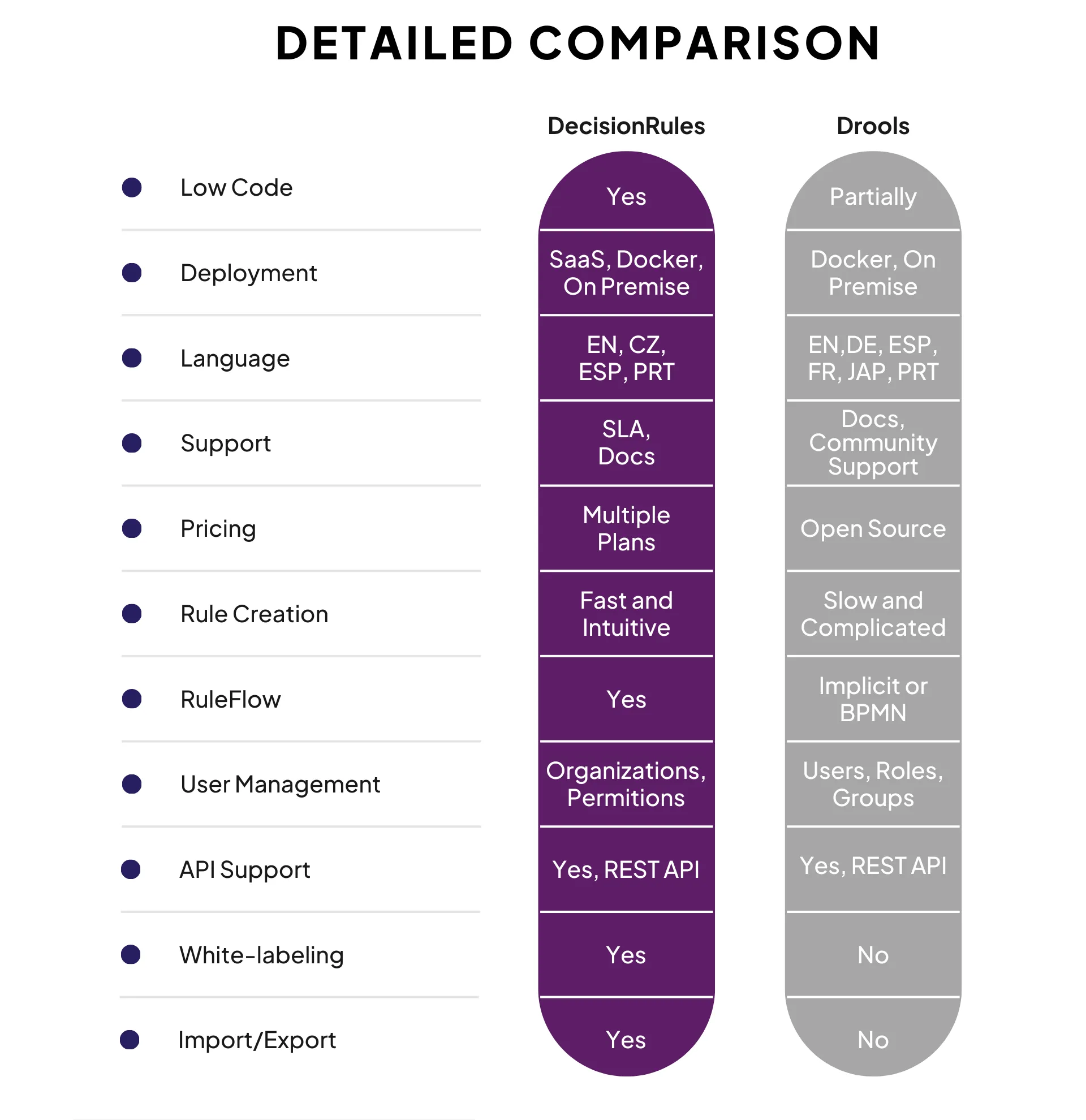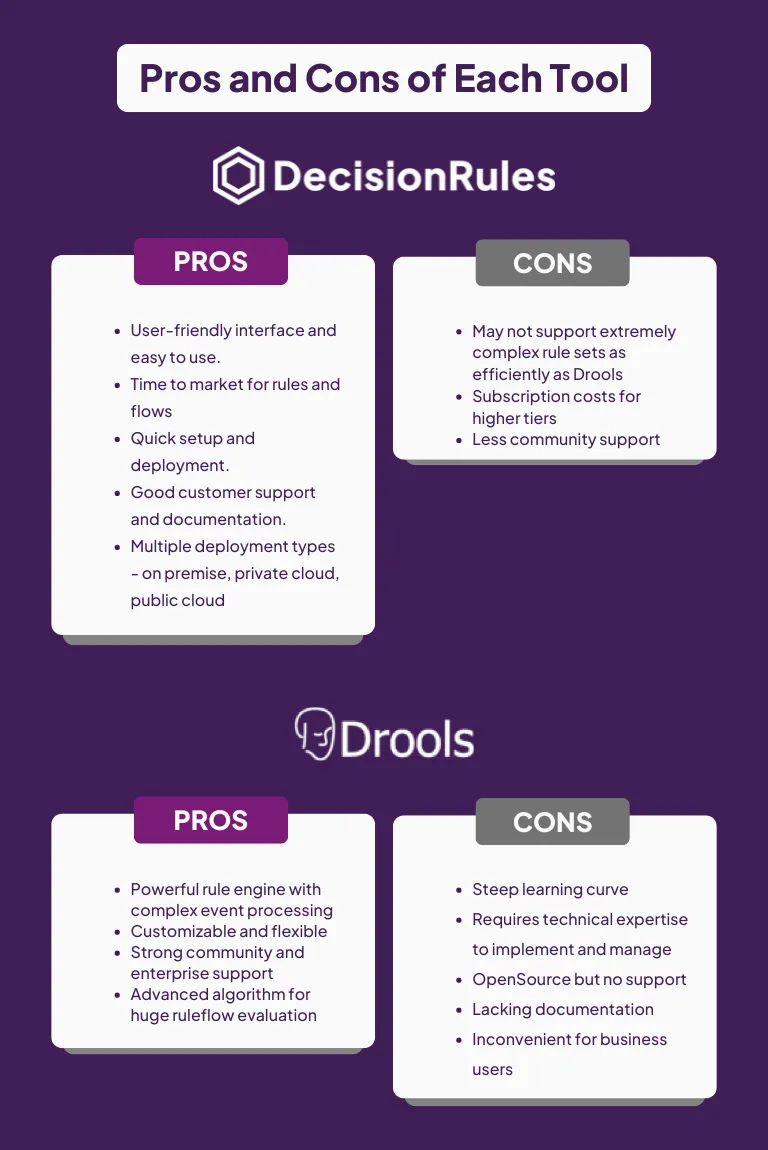Selecting the right business rule management system (BRMS) is crucial for organizations looking to automate and manage business rules effectively. This article compares two popular BRMS tools, Drools and DecisionRules, to help you determine which is better suited to your needs.
In companies of all sizes, each department typically operates under its own set of rules. These rules can either be hard-coded into your system, which makes it challenging to implement and maintain, or manage using specialized tools designed for this purpose.
Whether your company is considering the implementation of BRMS to orchestrate your business processes and improve decision-making consistency or you are looking for a new approach or transition from a legacy system to manage your business rules, this article is here to bring some clarity to such a crucial decision.
Both, Drools and DecisionRules, offer a comprehensive solution, however, there are significant differences to know before selecting the right one for your application.
The purpose of this comparison is to provide the reader with comprehensive information about both BRMS about its advantages and disadvantages according to an application.
Drools Overview
Drools is an open-source BRMS developed by Red Hat, providing a comprehensive platform for business rule management and complex event processing. It is widely used in industries requiring complex rule evaluation and execution.

DecisionRules Overview
DecisionRules is a cloud-based BRMS offering a user-friendly interface and easy integration capabilities. It is designed to simplify rule management, making it accessible to non-technical users while maintaining robust functionality for more complex needs.

Comparison Criteria

Overall comparison
Drools is a widespread BRMS that has been on the market since the early 2000s. Since then, the Drools team has tuned the engine algorithm to easily process vast amounts of complex business rules and become well established in many business domains. However, what Drools offers in raw processing performance is redeemed with its rather legacy approach to only on-premise deployment and the need for expertise in rule definition and management.
DecisionRules, in contrast, is a newer, user-friendly BRMS designed with simplicity and ease of use in mind. It emphasizes a "from an idea to a decision" approach, offering a low-code solution with an intuitive user interface aimed at business users. This reduces the need for extensive IT involvement, making it accessible to a broader audience.
Deployment
Drools provides two primary deployment options: on-premise installation and containerized solutions. The software consists of two main components: Drools Business Central for rule definition and management, and the KIE Execution Server for rule evaluation. Drools supports complex project structures, with rules organized within projects and projects within spaces, allowing detailed security and role management.
DecisionRules offers more variability in deployment options. The basic solution is public cloud deployment, this is the most flexible option, allowing users to scale the performance according to their needs without any concerns. Private cloud maintains flexibility and scalability while providing the user with space for customization and data security management. On-premise deployment is intended for the most complex applications and users who have to comply with regulatory requirements according to data management.
Support and documentation
Drools benefits from its long market presence, offering extensive language support and a strong community that provides assistance and shares knowledge. As an open-source platform, it comes with the advantages of community-driven support but lacks guaranteed service level agreements (SLAs) and dedicated support. Its documentation, while thorough, is geared towards experienced users, with detailed information on server settings but limited guidance on complex rule definitions.
DecisionRules is slightly lacking in language support, but this concern should be addressed in the future. On the other hand, with multiple payment plans and levels of SLA offered, every customer can choose a solution according to their needs from a simple plan to test your PoC to custom plans for your complex solutions. The documentation was written with the business user in mind and additionally offers an Academy to educate everyone in rule definition and management. Moreover, our plans offer the help of our experts, who can help you to build your project.
Rule definition and management
Drools offers complex options for rule definition with an emphasis on performance, where every rule type supports only a limited number of logical operations. Every rule and all corresponding assets are a part of the assigned project folder. Once the desired rule flow is built, the project is deployed on the KIE execution server and ready for use. However, Drools does not offer an explicit rule flow modeler to serialize your rules in rule flows. Users can use either the BPMN process modeler or an implicit attribute called salience, which assigns every rule its order of evaluation.
DecisionRules utilize decision tables, decision trees and custom scripting rules which all support complex functions thus keeping the projects simple. Similar to Drools, DecisionRules supports folder structure and customizable permissions and security management via organizations. To emphasize the importance of simplicity, DecisionRules allow the use of an in-built rule flow manager. This asset allows you to serialize your rules and tables to build complex rule flows from scratch in a graphical user interface.
Pros and Cons

Final Thoughts
In conclusion, Drools and DecisionRules serve different needs in the realm of business rule management. Drools is a robust and flexible solution ideal for enterprises requiring complex, highly integrated rule processing with Java. It is best suited for technical teams capable of managing its complexity and leveraging its advanced features. On the other hand, DecisionRules offers a user-friendly, cloud-based platform that caters to non-technical users and businesses seeking quick, scalable, and straightforward rule management. It excels in providing ease of use and rapid deployment through a low-code/no-code approach.
Co-authors: Erik Lehocký

Lukáš Čapek
Analyst
